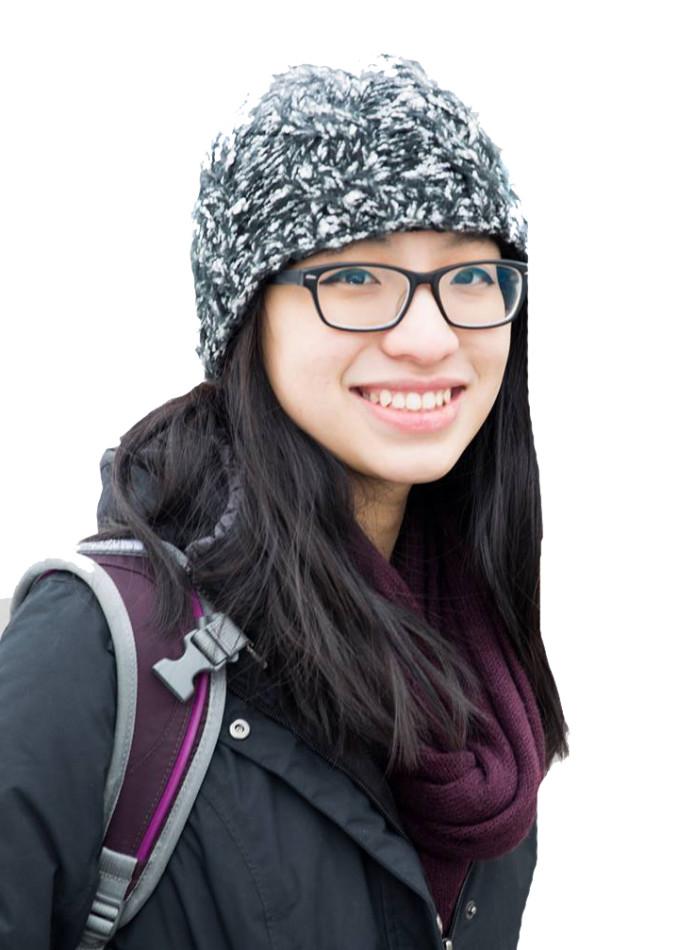The Spectrum: Transitioning from majority to minority as an international student
April 24, 2014
This past week, many a prospective student and undergraduate walked past panels of posters between the C-store and Dunkin’ Donuts at Norris University Center. On the pictures, several Northwestern students held up signs with statements that have been said to them at some point in their NU careers:
“So you’re the good kind of Arab?”
“Are you African Black, or Plantation Black?”
“You’re Latina and pre-med? Not for long.”
I know people paid attention because I was part of the group of students putting up the exhibition. I watched their eyes widen as their footsteps slowed down. I watched their brows furrow, sometimes with incomprehension, sometimes with deep thought.
At one point, I stuck up a poster of myself holding up a sign on the wall.
The posters were part of a campaign, jointly organized by Alianza and the Asian Pacific American Coalition, aimed to raise awareness about microaggressions — interactions in which body or verbal language conveys subconscious or conscious biases against marginalized identities.
Even as someone who has put several bylines to stories that critically explore my identity as a foreign-born Asian, it still hurts and confuses me to think about all the situations when people have misunderstood my culture or assumed they can judge me by the color of my skin. I don’t think I can ever really forget the time someone forced an impromptu crash course in basic grammar on me or the time someone told me I was so good at English that I represented a threat to the American job market.
Yet, as I stuck the last push-pin onto my own photograph that day, I was suddenly reminded of my own experiences occupying a position of relative power or privilege in my community.
Before attending NU, I spent the entirety of my life in the Southeast Asian city-state of Singapore. As one of the 70 percent ethnic Chinese population, I never had to question my own identity — I just assumed everyone understood my culture, traditions and customs.
On the other hand, I could never shake off a sense of awkwardness when I tried to understand my Malay and Indian friends’ cultures. I was always afraid of saying the wrong thing — and still I did. I vividly remember the horrified look on my friend’s face when I asked her if wine was halal, the outrage when I told someone she was Indian when she was actually Muslim. I remember my own embarrassment, my own confusion, my own shame — because I’d hurt a friend, but not because I knew why I had been wrong.
Coming to NU and finding myself cast out as the extreme minority now — often misunderstood, often judged — has changed my perspective on what it means to be accepting and open to people of different backgrounds.
It has reminded me never to take for granted that I or anyone — regardless of ethnicity, socioeconomic class or religion — can never be micro-aggressive, ignorant or insensitive. Yet, it also means that everyone, regardless of background, has the potential to be sensitive and open-minded, to treat every culture with respect.
In light of the movements related to minority populations on campus, like the protest for Michael Collins last spring and the NU Class Confessions tumblr this past winter, I have heard many an acquaintance and friend who are in privileged positions relative to these issues say: “So, I am [insert ethnicity/ socioeconomic class here. I can’t change anything about this and I don’t know how to react to these movements.” Having been on both ends of the stick, I have realized we all live with certain identities and social positions that may be completely out of our control. However, I have also viscerally felt the effects a lack of awareness about one’s own privilege can have on those in lesser positions of power and I know it is not enough to simply leave our privilege unacknowledged.
I have learned that as we navigate a complex multitude of identities, we must keep a receptive and open mindset about different cultures. Most importantly, I have learned that we can sometimes be wrong and that improving our cultural sensitivity is a lifelong challenge.
For me, it’s meant chatting with a friend late at night in Turkey about Arab-American culture or over dim sum in Argyle about the Asian/Asian-American community on campus, or attending events put on by different multicultural groups on campus.
We are all products of a society that leaves imprints of subconscious biases in our minds, and the least we can do is to keep in mind the diversity of human experience — how much we still don’t know and how much we need to keep learning from one another.
Yunita Ong is a Medill sophomore. She can be reached at [email protected]. If you would like to respond publicly to this column, send a Letter to the Editor to [email protected].
This essay is part of The Spectrum, a weekly forum in our Opinion section on topics of marginalization and privilege. To submit a piece for The Spectrum discussion forum, please email [email protected] with your idea for a piece no longer than 700 words that you hope to have published as part of the conversation.


